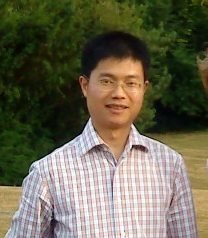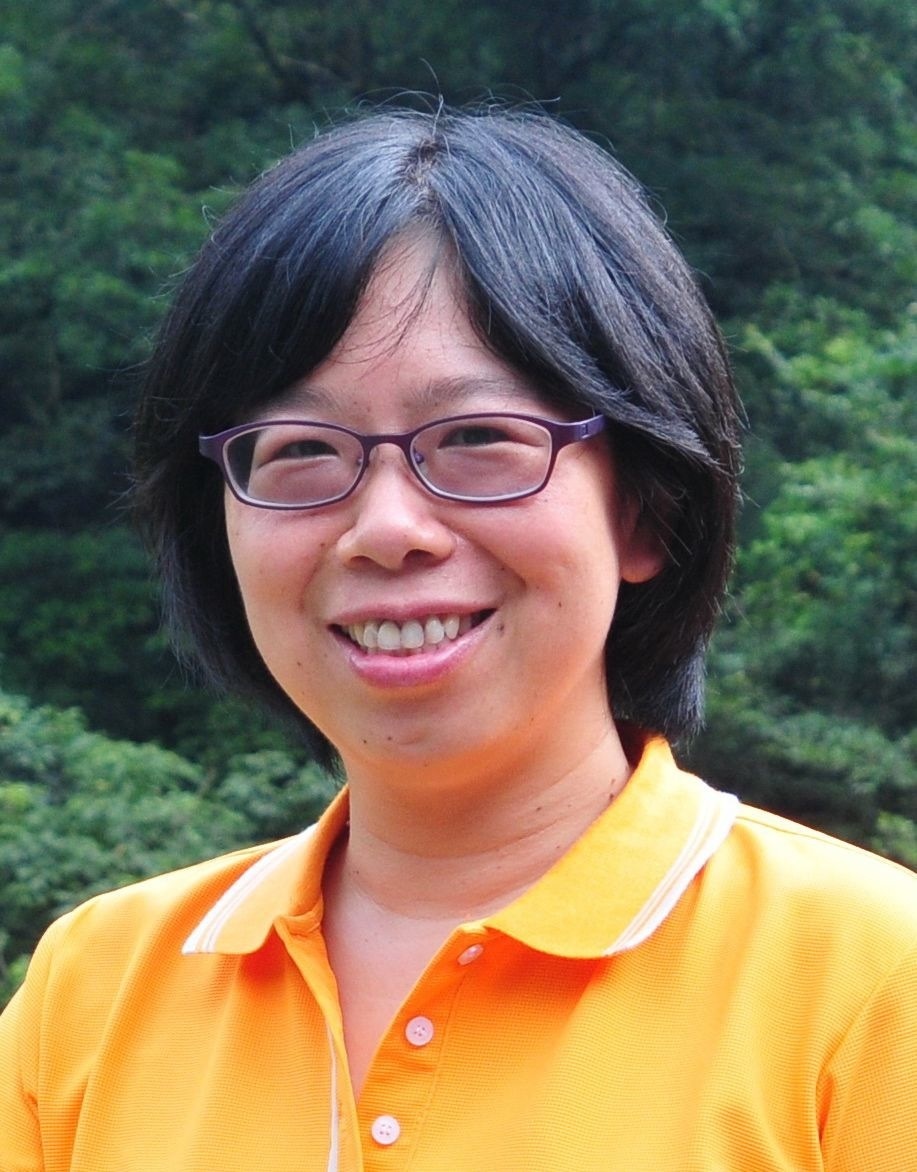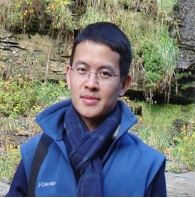
News |
Post-doctoral Fellowship Kuang-Chi Hung
will receive a D. Kim Foundation Postdoctoral
Fellowship for the 2013-2014 academic year. He
received M.S. and B.S. degrees from the Department
of Forestry, National Taiwan University. He expects
to receive his Ph.D. degree from the History of
Science Department at Harvard University this
spring.
Kuang-Chi Hung
will receive a D. Kim Foundation Postdoctoral
Fellowship for the 2013-2014 academic year. He
received M.S. and B.S. degrees from the Department
of Forestry, National Taiwan University. He expects
to receive his Ph.D. degree from the History of
Science Department at Harvard University this
spring. Mr. Hung plans to spend six months at the Arnold Arboretum in Boston, Massachusetts and six months at the Needham Research Institute, UK. While at the Arnold Arboretum he intends to examine printed and archival material pertaining to East Asian botany to inquire why the flora of Japan has such a remarkable resemblance to the flora of eastern North America. At the Needham Research Institute he will focus his research on a wide range of subjects on Chinese botany. The title of his dissertation is: Plants, Places, and Professionals: Plant Geography and the Making of the Botanical Community in Japan and China during the First Half of the Twentieth Century.  Lijing Jiang
will receive a D. Kim Foundation Postdoctoral
Fellowship for the 2013-2014 academic year. She
received a M.S. degree in Biology and a M. S. degree
in Biochemistry from Arizona State University; she
also received a B. S. degree in Biological Science
from Peking University. She expects to receive her
Ph.D. degree from the Center for Biology and
Society, School of Life Sciences, Arizona State
University in the summer of 2013. Lijing Jiang
will receive a D. Kim Foundation Postdoctoral
Fellowship for the 2013-2014 academic year. She
received a M.S. degree in Biology and a M. S. degree
in Biochemistry from Arizona State University; she
also received a B. S. degree in Biological Science
from Peking University. She expects to receive her
Ph.D. degree from the Center for Biology and
Society, School of Life Sciences, Arizona State
University in the summer of 2013.Ms. Jiang has been invited to spend the 2013-2014 academic year at the Department of East Asian Studies at Princeton University. While at Princeton University she will investigate the evolutionary, embryological, and genetic practices in twentieth-century China with emphasis on scientific practices and their views on evolution with a focus on in vitro fertilization research in the post-Mao China. The title of her dissertation is: Steering Evolution’s Will: The Making of Experimental Biology in Twentieth-Century China. Dissertation Fellowship  Victoria
Lee will receive a D. Kim Foundation Dissertation
Fellowship for the 2013-2014 academic year. She
received a B.A. degree in Natural Sciences from the
University of Cambridge, a M. S. degree in the
History of Science, Medicine and Technology, from
Imperial College London, and a M. A. degree in
History from Princeton University. She is
currently a doctoral candidate in the Department of
History at Princeton University. Victoria
Lee will receive a D. Kim Foundation Dissertation
Fellowship for the 2013-2014 academic year. She
received a B.A. degree in Natural Sciences from the
University of Cambridge, a M. S. degree in the
History of Science, Medicine and Technology, from
Imperial College London, and a M. A. degree in
History from Princeton University. She is
currently a doctoral candidate in the Department of
History at Princeton University.The title of her dissertation is: The Arts of the Microbial World: Biosynthetic Technologies in Twentieth-Century Japan. Her research examines how fermentation methods from traditional industries as sake and soy sauce production came to take a special prominence in the modern chemical, pharmaceutical and biotechnological industries in Japan.  Ryan Moran
will receive a D. Kim Foundation Dissertation
Fellowship for the 2013-2014 academic year. He
received a B.A. degree in History from Reed College
in Portland, Oregon, an M.A. degree in History from
University of California, San Diego . He also
received a certificate in Advanced Japanese Language
Study from Inter-University Center, Yokohama, Japan
and studied advanced Japanese Language at Middlebury
College. He is currently a doctoral candidate
at the University of California, San Diego. Ryan Moran
will receive a D. Kim Foundation Dissertation
Fellowship for the 2013-2014 academic year. He
received a B.A. degree in History from Reed College
in Portland, Oregon, an M.A. degree in History from
University of California, San Diego . He also
received a certificate in Advanced Japanese Language
Study from Inter-University Center, Yokohama, Japan
and studied advanced Japanese Language at Middlebury
College. He is currently a doctoral candidate
at the University of California, San Diego.The title of his dissertation is: Tabling Death: Life Insurance in Modern Japan. His dissertation explores the history of the life insurance industry in pre-war Japan and the importance of statistical methods for the scientific management of life in modern Japan. Traveling and Research Grant  Nathalie
Allain will receive a research/travel grant
in 2013. She received a B. A. degree in English
Language and Literature from University Paris, a M.
A. degree in French language and Literature from the
University of Washington. She also received B. A.
and M. A. degrees in Japanese studies from National
Institute of Oriental Languages and Civilizations,
Paris, France, where she is a Ph. D. candidate in
Japanese Studies. Nathalie
Allain will receive a research/travel grant
in 2013. She received a B. A. degree in English
Language and Literature from University Paris, a M.
A. degree in French language and Literature from the
University of Washington. She also received B. A.
and M. A. degrees in Japanese studies from National
Institute of Oriental Languages and Civilizations,
Paris, France, where she is a Ph. D. candidate in
Japanese Studies. Ms. Allain will travel to Japan and South Korea to conduct research on the therapeutic uses of Artemisia princeps, a plant that is widely used in East Asian folk tradition and medicines. She will focus her research on moxibustion, a medical practice that consists of burning maxas on the skin, according to the principles of traditional Chinese medicine.  Xiaoping Fang
will receive a research/travel grant in 2013.
He received a M. A. degree in History from Najing
University, China, and a Ph. D. degree in History
from the National University of Singapore. He is
currently employed as Assistant Professor of Chinese
History, Nanyang Technological University,
Singapore. Xiaoping Fang
will receive a research/travel grant in 2013.
He received a M. A. degree in History from Najing
University, China, and a Ph. D. degree in History
from the National University of Singapore. He is
currently employed as Assistant Professor of Chinese
History, Nanyang Technological University,
Singapore.Mr. Fang will travel to China to conduct fieldwork for his current project: Cholera Pandemic, Population Mobility and Transnational Politics in China. His research project will focus on transnational, regional and domestic population mobility and the spread of the El Tor cholera pandemic in China. This project aims to explore how population mobility modes contributed to the spread of the pandemic.  Yu-Ling Huang
will receive a research/travel grant in 2013.
She received a M. A. degree in Sociology and an
LL.B. degree in Law from the National Taiwan
University and is currently a Ph. D. candidate in
Sociology at the State University of New York at
Binghamton. She expects to receive her
doctoral degree this spring. Yu-Ling Huang
will receive a research/travel grant in 2013.
She received a M. A. degree in Sociology and an
LL.B. degree in Law from the National Taiwan
University and is currently a Ph. D. candidate in
Sociology at the State University of New York at
Binghamton. She expects to receive her
doctoral degree this spring.Ms. Huang will travel to England this summer where she will co-organize a symposium: Population Control and Reproductive Health Rights in Cold War Asia. She will present her paper titled: State, U. S. Influence, and Women’s Organizations: The Politics of Population and Reproduction in Postwar Taiwan during the 1950’s and 1960’s at the 24th International Congress of History of Science, Technology and Medicine in Manchester, UK.  Lei Zhang
will receive a research/travel grant in 2013.
He received a B. S. degree in Geography from Nanjing
Normal University and a M. A. degree in Historical
Geography from Peking University. He is
currently a Ph. D. candidate in History at Syracuse
University. Lei Zhang
will receive a research/travel grant in 2013.
He received a B. S. degree in Geography from Nanjing
Normal University and a M. A. degree in Historical
Geography from Peking University. He is
currently a Ph. D. candidate in History at Syracuse
University.Mr. Zhang will travel to Tokyo in June to conduct research on the experience of Japanese well drillers in the first decade of the twentieth century. He will probe into the question of how they indigenized the technology of well drilling in the daily life of Beijing. Mr. Zhang hopes to better understand the pattern and role of technology transfer in East Asia. Group Grants A symposium led by Dr. Jiri Hudecek “From antiquity to tradition? Innovation and the past in East Asian science, technology and medicine, from the seventeenth to the twentieth century” will receive a D. Kim Foundation Group Grant. The symposium will be held in July 2013 at the 14th International Congress of History of Science, Technology and Medicine in Manchester, England. The focus of this workshop is to analyze the ways in which early modern scholars and scientists of East Asia shed light on the complex nature of the transition from traditional to modern science. A workshop led by Aaron Moore “Engineering Asia: Development Visions from the Imperial to the Post-War (1931 – 1971)” will received a D. Kim Foundation Group Grant. The workshop is planned for late December 2013 in Singapore. The workshop aims to get a clear picture of how pre-1945 networks of technology and capital under the Japanese Empire transformed into postwar networks of “development” in Cold War Asia. A group grant is awarded to support the workshop organized by Aleksandra Majstorac-Kobiljski. The workshop will take place in May 2014 at the Needham Research Institute. The aim of the workshop is to bring together scholars interested in the history of technology in Japan to discuss new works in the field. The participating scholars in the workshop will, in different ways, address the questions of technological continuity and change. How do we decide what technologies and innovations are worthy of scholarly attention, and what can the study of technology in modern Japan (and East Asia) contribute to the global history of technology? |
||
| Home | Fellowships & Grants | Contact | Past Years: 2009 Awards | 2010 Awards |2011 Awards | 2012 Awards |